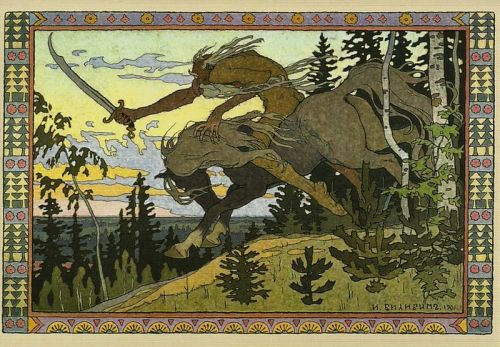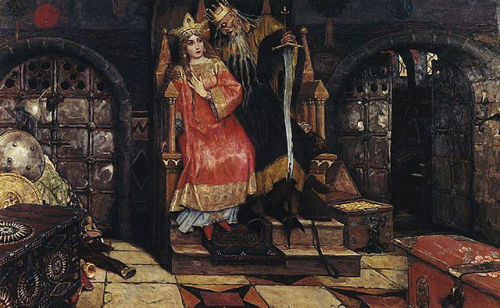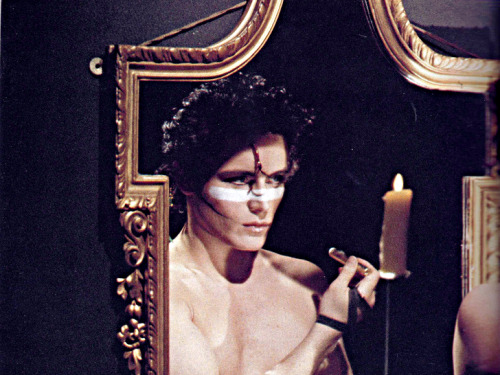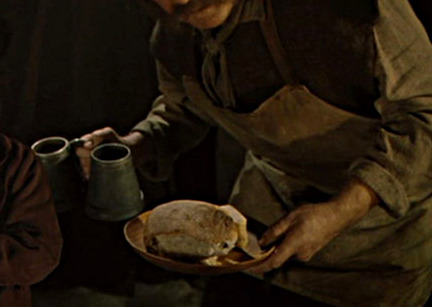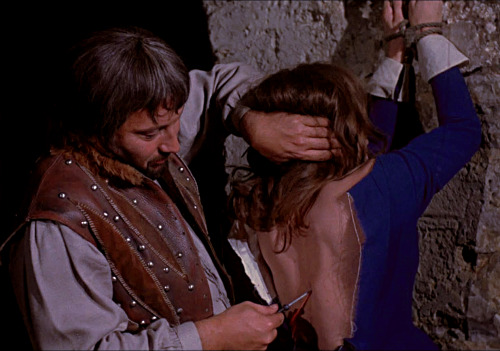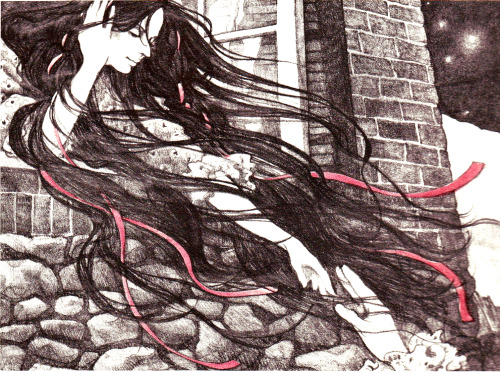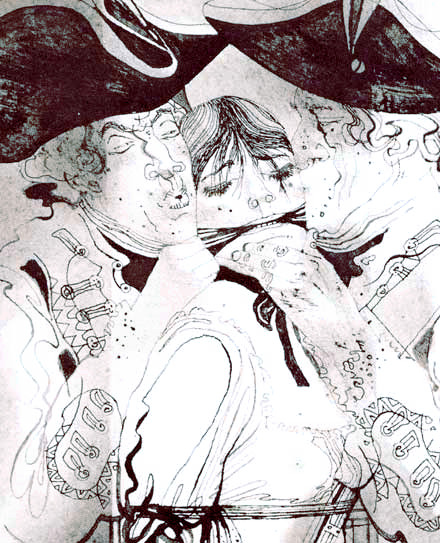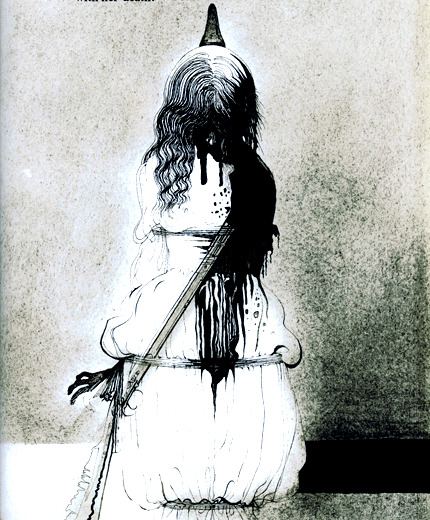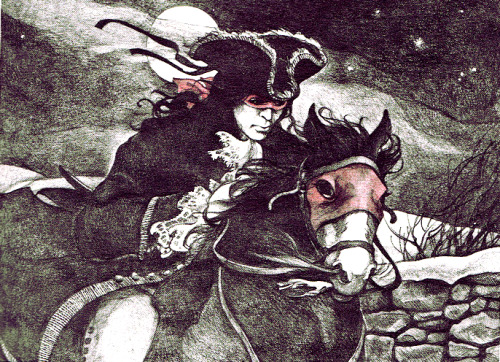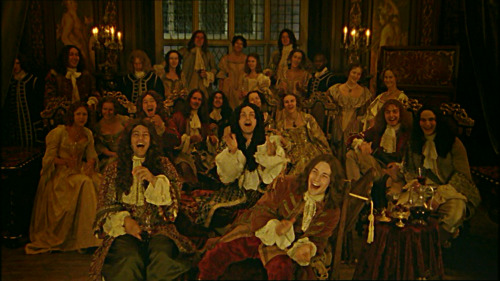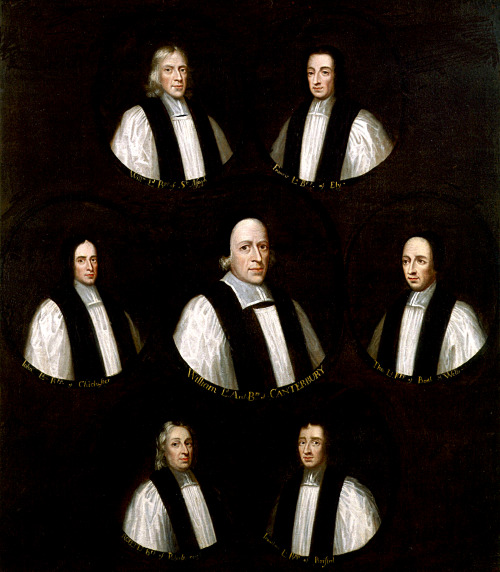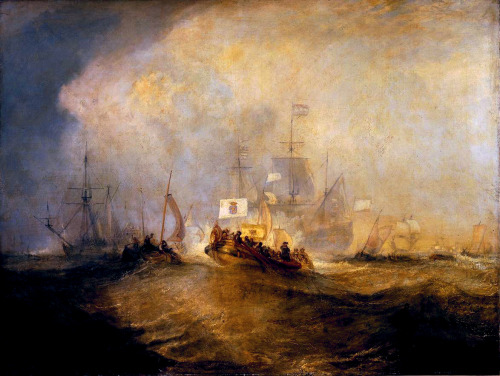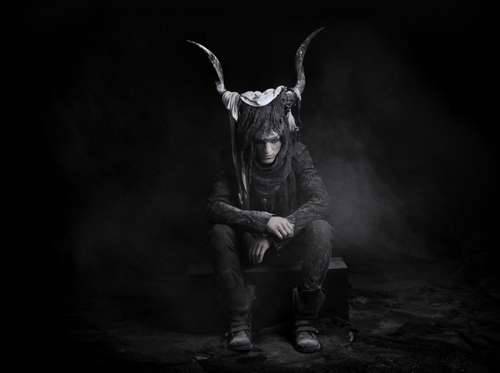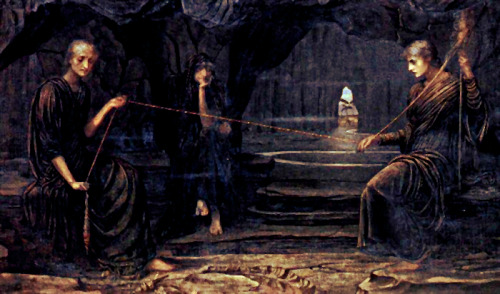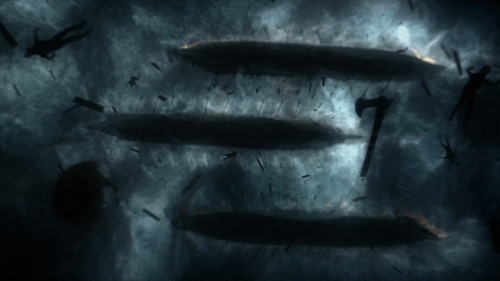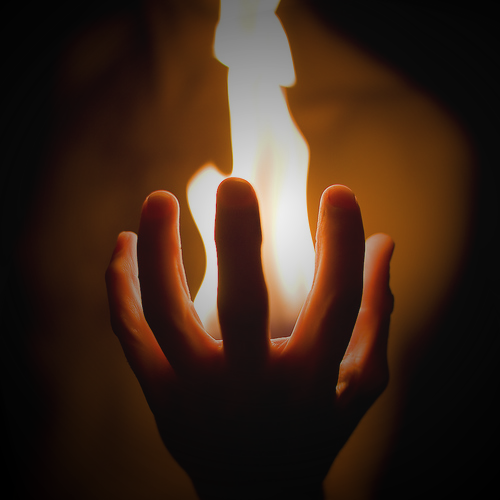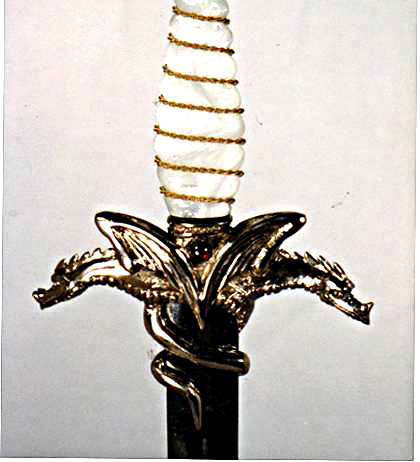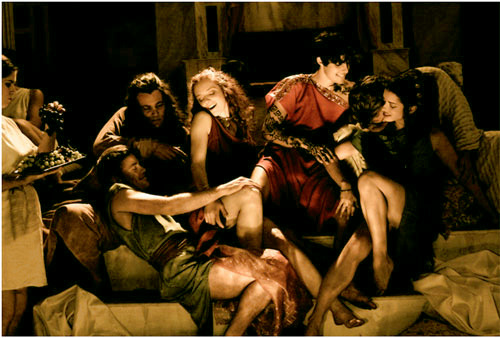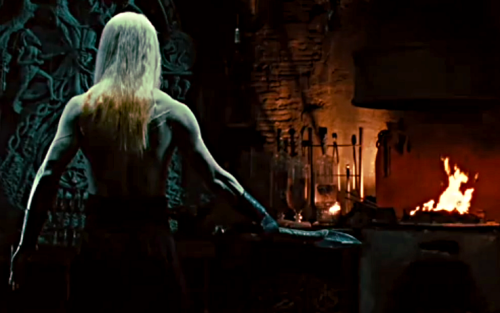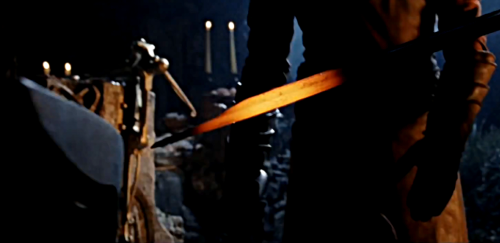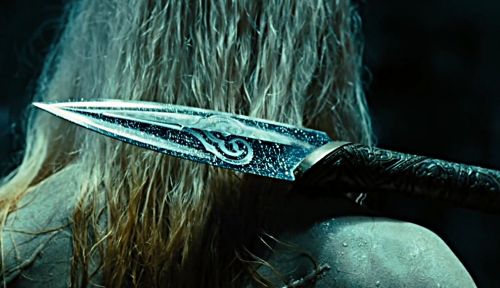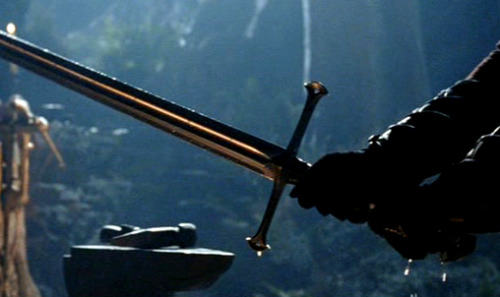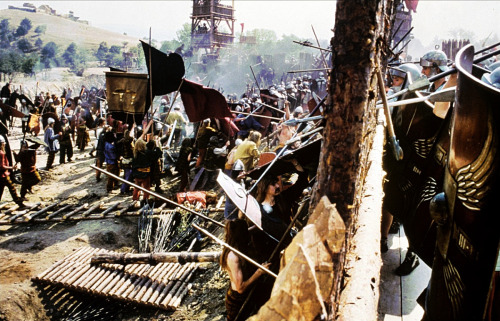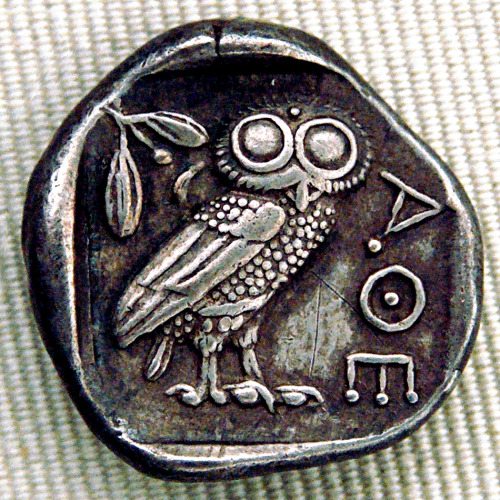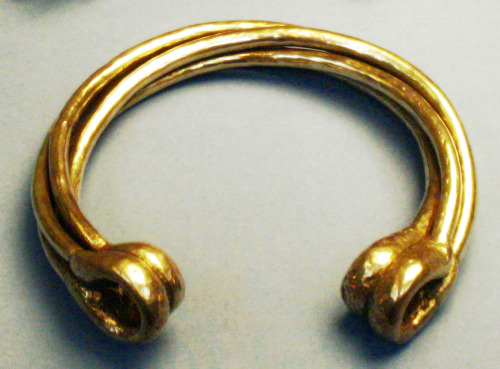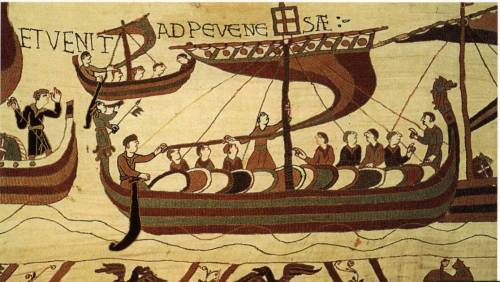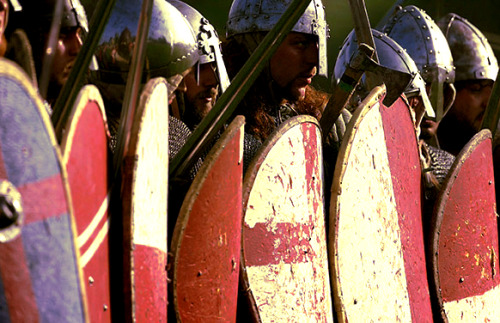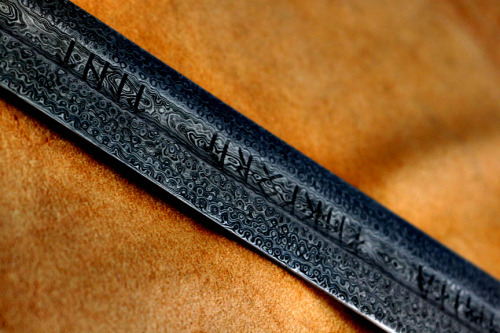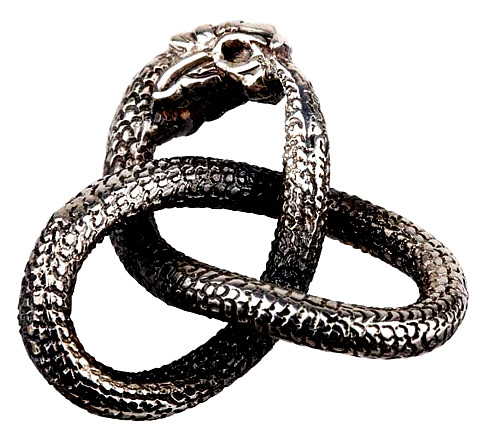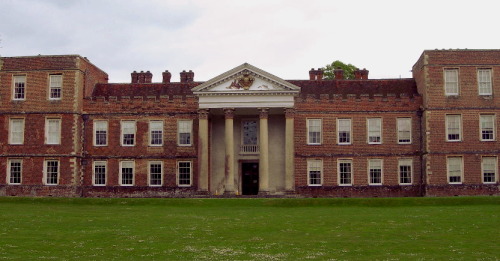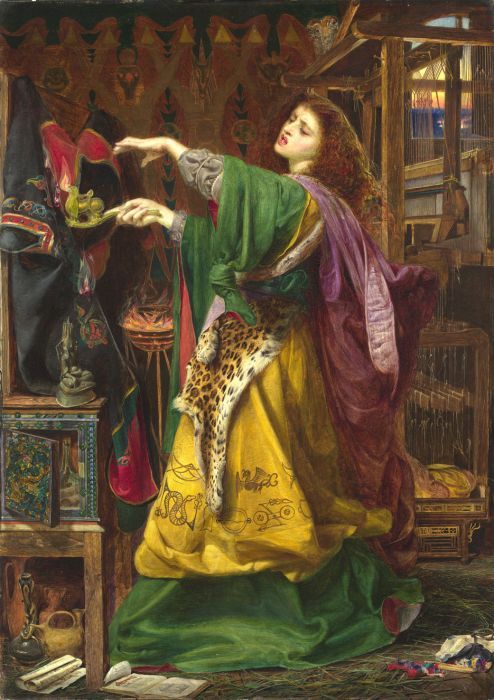#wizarding history
Amar baccha! My children, listen, for I have a story to share with you.
In the beginning there was the Kund, the deep wellspring from where the first Ohm of the Universe flowed. Soon other sounds and utterances flowed through, forming brooks of syllables, joined into streams of words, joined into rivers of sentences, joined into seas of stories, joined into oceans of truth.
And each sound and syllable and word, each sentence and story and truth, each little drop carried with it the Power of Creation and Destruction, the Power of Language: together like the ebbs and flows of tidal waves, like drought and floods, like sunshine and rain.
Creation comes from Destruction comes from Creation.
And this Power, the Power of Language, this exists for all those who speak, listen, write, read. For all those that carry Language in their heads and in their hearts. For it is Language that is your birthright and it is Language that is your responsibility.
And Language is not to be restricted, to be hoarded as though it is some precious and rare gold or silver. No, Language is to be shared by all, for it is everyone’s birthright, and everyone’s responsibility, to partake in the ebbs and flows of Creation and Destruction.
You are not the Master of Language, much like you are not the Master of Water or Air. You, all of you, are in Service to Language, much like you are in Service to Water or Air - Powers that create you, Powers that sustain you, Powers that destroy you.
There are some of you that will be entrusted to ensure the safety, sanctity, sanctuary of Language. You will be known as the Compassionate Ones, the Shafiqs, caretakers and custodians of Language and all those that wield it. It is your responsibility to care for the hearts and heads of those you serve, to ensure that their needs and desires are met, that they remain safe and protected and well. It is your responsibility to ensure that Language is shared freely, that Language is served for the greater good, that all hold access to Language and that your Language does not die before it is time.
And oh how its time will threaten to come! For there will be forces that claim to be Masters of Earth and Fire, claim their right to ravage your lands and control your people with ever-changing boundaries and restrictions. Forces that claim to be Masters of Water and Air and destroy all which you build in symbiosis to create that which dominates. Forces that claim to be Masters of Language, their own Language, while denigrating yours as lesser-than, impure, powerless.
And then there will be forces of your own. You claiming responsibility as privilege and using your custodianship as cruelty. You forgetting your own birthright and believing those that say your power can only be accessed by a select few through specific means foreign to you. You letting go of your Language, that which gives you Life, and forgetting all the syllables and stories and truths that it carries.
Destruction comes from Creation comes from Destruction.
The Power will still manifest, still create and destroy, even without your wielding of Language, even without those who speak and listen and write and read. It is Power that has existed before there was Humanity and will exist after there is Humanity, for it is Power that has created the Universe and will destroy the Universe.
Learn to approach Language with respect and responsibility, and you will gain strength, fortitude, prosperity, livelihood. But treat Language as though it is something you can control, restrict, deny, destroy, and you will find that it will control, restrict, deny, and destroy you.
And if you ever find that you are close to the brink of no return, return to the Waters: the oceans, the seas, the rivers, the streams, the brooks. Return to the wellspring, to the Kund, and call out for a new Ohm.
Remember this, baccha, for forgetting is the first step to Destruction without Creation.
[[source:Belinda Meggit
So thepostmodernpottercompendium is hosting this really interesting series on the origins of magic which is now becoming an interesting story in progress. I have been meaning to write this story for a long time, ever since I found this picture in researching the bede, or gypsy boat people of Bangladesh:she’s one of them. I knew she was the face of thedainee that mysteriously guides the Bideshis as soon as I saw her picture, and now I want to write her story.
The line about the kund and the first ohm is from a piece by Minal Hajratwala, about being a kinky queer femme Indian woman. In the piece she plays a lot with language and draws the connection between “cunt” and “kund” - as in “kundalini”. The name of the piece escapes me right now but it was performed in this year’s Yoni Ki Baat in SF.]]
Post link
Myths on Magic: Koschei the Deathless and the Winter Order
Koschei was Deathless they said. A Horcrux for a heart, a Horcrux in his head, and both ever-regenerating, made from long-ago thieved Philosopher’s Stones, made the old way, not with elements and magic but with the bones and brains of newborns, fresh and alive with youth and magic.
Not only was he impossible to kill, but he was truly unaging, the stones seeping their elixir into his bones and muscles and blood. He did not bleed red as your I, the babushki, the grandmothers would say. He bled a golden ichor, like the gods.
One in his heart, one in his head, that was the trick. Before the knowledge of Greek Healers, headed by Galen and Hippocrates and Asclepius headed into the cold expanse to the north one man stole two sacred stones, split his soul and made them reliquaries, and had the stones placed in his belly. He almost died then. But he lived and the stones, they think, saved him.
They merged together in his belly and when he died the first time they remade his body without the aid of others, and the stones remade themselves as two, one embedded in his brain, one buried beneath his heart. Stab him in the heart and his head heals. Crush his skull and his heart reconstructs.
Koschei founded the Winter Order, after a fashion. Followers who found his ability to live on, unaging, undying unusual. They made their own, perhaps more viable, horcrux, of their very country. How can they die when Russia lives?
And indeed they did not, though Koschei did. Stabbed in the heart, head crushed, neither stone could quite fix him. The Winter Order buried him, a vault of his own, hidden Chernobog knows where. Some say, like the Briton’s Arthur, he is only sleeping, that one day he will wake and return to us. That he sleeps and recuperates, that one day, one day when we most need him, he will return.
We know not. The Winter Order selected a new leader, and followed a small cycle, all those of sufficient seniority allowed to rule for half a century or so. Chernobog had his turn, the twin Zorya - both Untrennyaya and Vechernyaya -, Rasputin, all held the mantle of Deathless in their turn, all had their chances to direct the future of Russia.
They do not call themselves immortal, the Winter Order, though they might have every right to name themselves as such. But they claim they are no better than mortals, they are nobodies, nobodies who have given their selves away to make greater Mother Russia. Not all of them are even Russian, are even human.
They are changeable, the babushki said, as the winds, and like the winds answer to none but themselves. The Czars had no power over them the undying, nor the Dictator, nor the KGB. How do you threaten an army of them that are faceless, undying and as eternal as the ice of Mother Russia? And who, when they are needed, will turn back Charles XII of Sweden, will turn back Napoleon, will turn back Hitler?
It was against Sweden their true power came out, scorched earth, the Czar had asked for, to let the Swedes starve in the winter. And implacable as that same winter the Winter Order wielded their magic and with a wave fire flew forth.
Burn, Retreat, Freeze.
The motto of the Winter Order. If you hear it said, leave. If you hear it said, do as the cloaked men, women and monsters ask you to. Or you will die in the flames and frost.
They aren’t real, are they babushka? The Winter Order? So many children ask, half afraid of of the faceless, nameless Order that protects their country.
But no one knows child. The Church perhaps. The Czars once. But they are of magic, and only the magi know what of that is true.
—
(Submitted by the lovely and brilliant and truly imaginative essayofthoughts. Stones being made with the bodies of children from a discussion with everambling. Chernobog and the Zorya are ancient Slavic deities. Sweden’s attempted invasion of Russia failed largely due to Tsar Peter the Great’s Scorched Earth policy.)
Post link
The truth behind the Highwayman’s Tale
If those interested had bothered to ride along the London-Bath road on the day the graves bring forth their dead, they might have learnt the entire truth behind the highwayman’s tale.
Of course, it was against their interest to know what led up to the events of that fateful nights, now that they’d so firmly established that all muggles were all monsters with no honor and no loyalty. They might have to, horror of all horrors, change the way they thought of the matter in the first place.
Then again, the human mind is capable of extraordinary mental gymnastics.
For if they’d particularly cared to know the truth about this man and his deeds, they could have asked the ghosts of Frederick and his lady love, both of whom still wandered the London-Bath road late at night.
They would have learnt that Freddie, by nature, was a philanderer and that this was no great love story of theirs. He would have left Bess without a murmur when he tired of her - indeed centuries of being forever at her side had long since weaned him of all desire and tenderness he might have once felt for her.
They might have remembered that Frederick Rosier made it his business to steal from his people; the wealthy purebloods; to return those goblin-made artifacts they had once seized for their own. That he never had a second thought where killing was involved, as long as he won his spoils. They might even have gone so far to have found a paybook with neat annotations of payments received from the goblins for each item recovered - they paid him a far greater sum than the pin money his father was wont to give him.
And let us not forget to name his lady love - Bess her name was, and she was a true Gryffindor like her highwayman - an ordinary tavern wench and muggleborn,who gave selflessly to her highwayman, knowing quite well that in time he would tire of her and marry some rich, odious pureblood witch and settle quite happily with her.
And even this is not the entire tale. This, at least, is still told among certain people, whose voices are rarely heard over the clanging of coins and proclamations of blue-bloodedness.
The highwayman’s tale was far more darker. Concerned more than one man.
If only they had bothered to question the ghosts of Frederick Rosier and his tavern wench - but in truth, who would have known where to look for them when the inn no longer stood to mark the place? - they might have learnt the entire tale. For the story the purebloods told their children left out the most crucial part of the tale: the arrest of the landlord and the burning of the tavern by King James’ men.
Of those who died in the fire that night, ten were muggles and only two were wizards. And for them, no justice, no vengeance was exacted and nobody knows their names or who they were, whether they had families who missed them and why they happened to have been there on that fateful night.
The fact that so many paid for one man’s reckless bravery is a part of the tale which is never told and will never be told as long as the sound of gold coins drowns it out.
What other tale would the purebloods tell their children about the wicked muggles, if not this one?
[Pictures Sources: The Girl Who Looked Out At the World by Alex Stoddard Photography, Screencaps from Stand and Deliver by Adam Ant,Witchfinder General,The Fellowship of the Ring,Building on fire by Sephirothmsk on Deviantart.]
Post link
The Highwayman’s Tale
Blood-red were his spurs i’ the golden noon; wine-red was his velvet coat,
When they shot him down on the highway,
Down like a dog on the highway,
And he lay in his blood on the highway, with the bunch of lace at his throat.
The Highwayman’s tale is a story each pureblood child hears in their cradle and is repeated to them, year after year, night after night until the words are forever locked into their hearts and they can tell the tale without stumbling, so that one day they too may pass this story to their children to teach them what it means to be a witch or a wizard.
Muggleborns who ask why, in these modern times, the magical folk still hide themselves away are told this tale in answer.
For the tale is one of violent beginnings and ends, of love passionate and enduring, of betrayal and jealousy, of pain and loss and death. And most importantly, it reveals the true nature of these lesser beings who once persecuted them and would persecute them once again, if they revealed themselves.
It tells the story of young Frederick Rosier, a wizard aristocrat turned highwayman and his love, a young witch who served as a tavern wench in her father’s inn. Every night he comes to her, before he rides on his way to make his raids in the moonlight. Jealous of Rosier; jealous that she should favour a handsome, reckless stranger over a steady lad like him; the muggle ostler Tim betrays them and tells King James’ men-at-arms of a highwayman who will ride the London-Bath road that very night and will return at dawn with his spoils to greet his lady love.
The king’s men come to the inn and bind the young witch to the foot of a bed, by a casement looking on to the road below, a musket underneath her breast. She shoots herself when she hears him approaching, warning him of the danger awaiting him at the inn and Rosier flees at the sound of the shot, not knowing that it is his love who has shot herself to save him. When he does hear of it, he turns his horse and rides to avenge her death and is shot for his efforts. King James’ men are rewarded by William of Orange, Tim the ostler rejoices and business continues as usual in the village as Freddie Rosier bleeds to death.
The tragedy of the tale, as it was told, lay not in the death of an innocent, but the butchery of a pureblood scion, beloved of the wizarding world and saviour of the poor. This was the way of muggles, the story taught, they killed those who helped the poor and betrayed their helpers.
Good wizards stuck by each other. Good wizards stood by their own. And when the muggles struck them, they would strike back with such force as to show them that these were not a people to be trifled with. They might have allowed themselves to bleed once but never again and certainly not for these non-magical liars and cheats.
They stood by each other as they did by the Rosiers when Freddie died.
[Image sources: The HighwaymanbyCharles Keeping,The Highwayman by Charles Mikolaycak]
Post link
Of the Statute of Secrecy and the Glorious Revolution
It began, truly, with the ascent of King James II. A Catholic king, a Papist; no true English King was he. Before, there was the Malleus Maleficarum, admittedly. An evil work, full of hatred and prejudice and gross ignorance. But James, James the Catholic King, went further than anyone had gone before. James saw witches brewing storms in cauldrons, wrecking his ships on the high seas. James saw dark shadows and dangerous forebodings in every nook and cranny, in every old crone’s face. James saw sorcery in the dark claws of the Black Plague which reared its head once again and scoured England’s bonnie shores for new victims. James saw Protestants and witches conspiring with each other, to depose him from his throne.
And so James made them burn.
They burned without discrimination. They burned harmless old women who had long outlived their usefulness. Children. Oddities. Enemies of the state, professed and believed. They stoked the flames with their pamphlets, little tracts and brandished copies of Malleus Maleficarum and other such esoteric works - and how the magical world burned. Wizards, witches and sentient magical creatures began to flee into hiding, shutting themselves away from the world they had once known. Books on wards which had hitherto languished on shelves were taken down and dusted off as the wizarding world slowly disappeared from sight. Calls for separation and secrecy were rife. Magical children who once played happily on the streets with their non magical counterparts were suddenly dragged away and indoors by worried parents. None dared walk the streets with their heads raised high - head down, eyes down, walk briskly, out of sight out of mind. And yet they burnt, the flames steadily rising higher.
Until finally the flames leapt so high, it tickled the chairs of the Malfoys and the Blacks, the Notts, Averys and Rosiers, the Prewetts and the Longbottoms and Macmillans. Powerful families, as yet untouched by the persecution their fellow witches and wizards were subject to, happy and carefree as they danced among the lords and ladies of the time and whispered secrets into the ears of princess Mary - for the king distrusted them far too much to let them counsel him. For the first time in centuries the whispers they heard were directed at them - strange, unnatural, abnormal, possessed by demons, satan worshippers, heretics, kill them, burn them. Cutting insults and calls for excommunication and worse, death, being freely tossed among those they had once considered friends.
So it was that some of the magical folk of England came to cast their lot with seven bishops and seven lords who had long been conspiring with William of Orange to depose King James (God have mercy on his soul, he had no right to usurp Parliament and its processes - nor to employ a standing army of his own; all Catholics, down to the last man). William would re-establish the rule of law and wizards would no longer have to live in the shadow of fear. This much was promised to them both. They would not have it as so many others would; to separate from the muggle filth, as the Blacks and Lestranges put it; for they did not care to lose their comfortable places in power. The Statute of Secrecy, which so many wizards were now favouring, was an idle and impractical fancy, said the Malfoys, Averys and Prewetts, for how could they live apart from those they shared their land with?
Of all the families of political importance, the Rosiers were uncertain of where they stood on the matter of separation from the muggles and were courted for their indecision. The Blacks and Lestranges would have them add their voice to theirs - and sometimes the Rosiers teetered on the verge of arguing for secession. But then the Malfoys would sidle up to them and remind them of all the influence and extravagance they stood to lose if they closeted their world away from the muggles. Reluctantly, Edmund Rosier finally sided with the Malfoys, unwilling to sacrifice the comforts of muggle aristocratic society.
Unfortunately, the best laid plans of men and wizards oft go astray. In this circumstance, they went astray in the form of Edmund Rosier’s youngest son, Frederick Rosier: an excitable young blood, with a penchant for causing disturbances on His Majesty’s highways. Young Frederick thought of himself as a noble, Robin Hood-esque figure, stealing from the rich to give to the poor. Needless to say, his father and much of the rich wizarding world looked on him askance and ignored his misdoings, save when it was they who were being robbed by this dashing young man.
It was when William had set sail from Rotterdam, after a storm on the seas had scattered his fleet, that the first of the rumours began to pour in. Another witch killing. King James’ men at arms had shot someone. The kind of rumours which were perpetually being tossed about. But it was on the first day of November, as the wizards tried their best to combat the unfavourable winds with weather altering charms, that news reached Edmund’s ears that young Frederick had been shot by King James’ men-at-arms at an inn on the road from London to Bath.
Now make no mistake, Edmund Rosier had never had much love for his son while he had lived, considering his youngest to be a disgrace to the family name. - had even gone so far as to disown him. His death at the hands of muggles, however, in the fashion of highwaymen bandits and muggle commoners, left him furious and distraught by a grief that a child experiences when a toy it has hitherto ignored is removed from its reach. He closeted himself away in Rosslyn Hall, seeing none but his closest family and exchanging letters only with the Blacks and Lestranges.
And while he was gone, pureblood society whipped themselves and wizarding Britain into a fanatical frenzy, for the muggles had gone and done a terriblething, shooting a Rosier as though he were a common criminal.
When William finally landed on England’s shores on November the 5th, and declared freedom and liberty for one and all, he found the wizarding world up in arms,crying for justice for this most precious son of theirs. For a Rosier is always a Rosier, even in disgrace and upon hearing of his son’s death, the Rosier patriarch had changed sides and now cried for separation from these animals altogether. Many rallied to him in their shock and horror - for young Rosier was well-loved among the people (and even though the Purebloods had never loved him in life, in death he became their champion, a brave hero who stood up to an unjust and oppressive regime and was consequently shot for his fine efforts).
What else could you expect from animals, said the Blacks. The Lestranges simply snorted sardonically, content that their point had been proved. Both welcomed the Rosiers into their fold, disbalancing the careful alliance of support the anti-statute of secrecy faction had built up.
Wait, said the Malfoys, for William would surely give them the justice they desired. (How tiresome to have to give up one's comforts for justice for a rich man’s wastrel.)
Yet William turned a deaf ear to them and turned instead to his non-magical supporters for advice. He praised the soldiers for doing their duty by God and their country, rewardedthem as the wizarding world looked on in horror. He had not come for these pagans, he said, he would not help them for they were rogues and criminals all, lacking in civic discipline and unbound by the true morality which came from the one true God above all other gods. His people were the Protestants and Anglicans - true Christians - not these heathens who in truth, deserved to burn for their heresies. Pro Religione et Libertate, that was his motto. He had not sailed all the way from Holland only to betray the motto he so proudly displayed on his arms. He would not hear these heathens and criminals any more.
Vindicated, the Lestranges and Blacks crowed in triumph: this, this was why allmuggles were filth; the Malfoys were foolsfor thinking otherwise. Those creatures could not be trusted to keep their promises; in the end they would always turn to bite the hands which fed them.
Too shocked to retaliate, the Malfoys made no countermove when the Wizengamot was convened and the Statute of Secrecy was voted upon. Family after family voted against mingling with these vile creatures, who turned on their friends sans provocation and could not be trusted to keep their word. For William had promised to help them, but when the time came for help, he had turned his back on them and chosen their oppressors and enemies - the ones who would have burnt them - forgetting that it was they, the magical ones, who had filled his sails with wind and brought him to England before James could rally his armies. William had betrayed them, but never again would they be so deceived.
Thus it was that the Statute of Secrecy was passed without a murmur of opposition. And in early 1689, not more than three months from Frederick Rosier’s death, the wizarding population of the British Isles forever closed themselves off from their fellow muggles and to all extents and purposes disappeared.
For a Pureblood is a Pureblood even when disowned and the magical folk always stand by their own - who would, if not them?
[Picture sources: Screencaps from Charles II:The Powerand Passion,The Seven Bishops Committed to the Tower in 1688 by an Unknown Artist,The Prince of Orange lands at Torbay by Turner, William III at the Battle of the Boyne by Jan Wyck]
Post link
The Sacred Twenty Eight: The Noble and Most Ancient Houses of Nott and Rowle
Ergi, the Rowles called them
And sneered,
But the Notts only smiled
And wove on in silence.
They might be ergi,
but they were seiðmenn
And they would never be blót.
The common wizards and witches of Britain had their own version of a very muggle saying - out of the frying pan and into the fire. Theirs was a little… different. For it went like this:
Fleeing the Blacks
only to cross the Notts.
The Blacks were dangerous, but nine times out of ten you knew precisely where you stood with them - they wore their hearts on their sleeves. If you insulted them, you could rest assured they would curse you, probably using some obscure dark curse no one had heard of and things would be well. Mostly.
But if you crossed a Nott, you’d never know it. They merely smiled and continued as though nothing were wrong at all. Excessively well-bred, always courteous - haute ton. But once you had left, they would return home, still smiling, and take down an ancient distaff and spindle; magical objects passed down from generation to generation for each Nott versed in the magical art of Seiðr.
Magical Britain laughed at divination and called it a fuzzy art with no magical grounding, for charlatans and their ilk, and the Notts agreed with them. Crystal balls, tea leaves, reading sticks - amateurs. The future was what people made it, what a talented seiðmenn orseiðkonurcould make it. The future was whatever the Notts chose to weave on their tapestries. Each thread, carefully placed, turning thought into reality, fiction into non-fiction, lies into truth.
None knew this better than the Rowles. They had learnt firsthand, many centuries ago, that mocking the Notts - these students of Odin - came with a price. A blood price that might have been honor to those who paid it but was a blood price nonetheless.
The Rowles might have been warrior-shamans; berserkers invulnerable in battle; but the might of the sword or even crude magical power could not withstand the implacable weaving and reweaving of reality and fate that the Notts took part in. Theirs was deeper magic, darker magic, terrifying magic and when the Rowles and Notts came to England with the first of the Vikings to rule Scotland, they brought rumours of what the Notts could do to people when crossed and people fearedthem.Fearedthese mild mannered men and women who refused to let this new religion called Christianity and its sociopolitical order sway them; who failed to conform to the new order’s strict regimentation of gender and male and female occupations; who smiled when people spurned them and smiled even wider when their mockers were slowly ruined piece by piece.
So not a murmur was heard when Proserpina Nott, aged 16, took up the family seat in the Wizengamot in 1734 though she was the youngest of the Notts and had not yet finished her schooling. The Ministry kept mum when Tiresias Nott refused to use their curriculum when teaching divination and instead taught his pupils trance magic and weaving: the beginnings of Seiðr. Wizengamot members cast their eyes downwards when Isembardus Nott stood up to make speeches, lest he see the judgement in their eyes when he painted his face and persisted in wearing pompadour wigs in public (it was 1854). People turned the the other way when Cantankerus Nott, pureblood fanatic extraordinaire, put half his fortune into muggle stocks and bonds. And no one dared say a word when Charles Nott stood a little too close to Antinous Lestrange at Ministry press conferences.
No. Only the foolish with a death wish ever crossed the path of a Nott. For they would have their revenge, these children of Guðrún, protégés of Odin and their revenge would be cold, dark and terror-filled as the houses of Hel.
[Picture sources: Shadows on Parade by Nicol Vizioli, CALLE 20 by Jose Herrera, The Essence by Spencer Hansen, Norns Bruk, A Golden Thread by John Melhuish Strudwick, screencaps from Vikings and 1066: the Battle for Middle Earth]
Post link
The Sacred Twenty Eight: the Noble and Most Ancient Houses of Mulciber, Rosier and Malfoy. (3/3)
The Malfoys, to their dismay, were not even deemed worthy of an insulting gift. Pretenders, the Mulcibers called them and blithely dismissed them as being generally unworthy of a gift. Their lineage was not old enough - even though they could trace their line back all the way to the Merovingian dynasty at least (more than several other families they could name) - and they had no dedicated family craft or magical art to speak of. That they had risen from obscurity and become one of the most powerful families in wizarding Britan seemed to matter very little to the Mulcibers. Parasites, said the Mulcibers, for the Malfoys thrived on the little games people in power played with each other and not on any magical skill of their own.
Worse still, the Malfoys were rather new when one compared them to the other families of the Sacred Twenty Eight. They could not trace their family line back all the way into legend as so many of the other families could - indeed they did not waste their time brooding over long family trees of dubious veracity. They did not claim divinity as the Lestranges did, nor did they claim to be descendants of famous and powerful sorcerers and sorceresses. No. They wore their badge of services rendered to William the Conqueror with pride - and wizarding society bought it for the most part. After all, not many could boast of having rendered services of a personal and delicate nature to the country’s monarchs.
The Mulcibers, however, proved to be a tiresome spanner in the works of the Malfoys’ carefully crafted story. Unspecified services to William the Conqueror were nothing to boast of, they said. Sailing with William the Conqueror was no great deed in itself. For all they knew, the Malfoys might have been William’s hangsmen - in fact it was quite likely, given the Malfoy family’s reticence on the matter of the nature of these services. Neither were services rendered to Her Majesty Queen Elizabeth the First of England enough to make the Malfoys worthy in their eyes. Politics, the Mulcibers believed, was a game anyone with a modicum of sense could play and was not enough to make the Malfoys exceptional in their eyes.
Thus it was that the Malfoys had to remain content with those artifacts they seized from wizards indebted to them - need we mention the Weasleys were among one of the unlucky families to have lost their prized heirlooms to the Malfoys (forever a sticking point between the two families)? - all the while aware that families like the Blacks and Lestranges were quietly snickering at them when their backs were turned. Aware and unable to do anything, for a gift is a gift and cannot be forced out of the giver. The snubbed Malfoys simply had to make do with a second rate (but nonetheless very beautiful) family sword. Not forged by the Mulcibers.
Some things, the Malfoys acknowledged, to their shame, could not be bought with money.
Post link
The Sacred Twenty Eight: The Noble and Most Ancient Houses of Mulciber, Rosier and Malfoy. (2/3)
Imagine the chagrin, then, of the Rosiers when their turn to receive a gift came round and they found themselves slighted by the choice of gift. Yet as the Mulcibers were quick to remind them in delicate terms, if it had not been for a favour they owed the Rosiers, the Mulcibers might have never chosen to give them anything at all. But since they were required, as a point of honour, to do so, they chose their gift very carefully indeed and made sure the Rosiers knew precisely what they thought of them.
A throne, they gave the Rosiers. To be precise, a crudely made throne of iron sheets, nailed together in the most rough fashion possible. It looked well enough - the Mulcibers could let their aesthetic sensibilities only be offended so far - but it was no crafty sword or delicate objet d'art. The message was quite clear. The Rosiers were extravagant, aye, but extravagance would never cover up their true nature - that is to say, a nature of the basest kind.
To add salt to the wound, the throne had no magical value at all. It was precisely what it seemed - an ordinary iron throne - and one that a Mulciber might have sold to a vain muggle nobleman for an exorbitant price. Of course, the Rosiers could not say a thing, for a gift is a gift and to shove it back in the Mulcibers’ faces when they had received it with such pomp and circumstance would come across as ungracious and boorish. Heaven help them, the Mulcibers already thought so poorly of them, it would hardly do to encourage the rest of the wizarding world to think of them in the same way.
So the Rosiers kept quiet and fumed quietly in their boots, cursing their ancestors for having had the misfortune to be imprudent, foolish and vain, and above all, for incurring the scorn of the Mulcibers.
Post link
The Sacred Twenty Eight: The Noble and Most Ancient Houses of Mulciber, Rosier and Malfoy (1/3)
It is no mean feat to deliver a well-placed insult to one of the Pureblood families who make up that exclusive group known as the Sacred Twenty Eight.
To insult twoof these families and get away with it - well that takes extraordinary talent, particularly if the families concerned happen to be the Malfoys and the Rosiers. Both are proud families, rarely forgiving perceived slights against them.
Presumptious, the Mulcibers called them. They may have all sailed together with William the Conqueror, but the Mulcibers could tell you a thing or two about them. The Rosiers might be an old family, with a geneaology going all the way back to the early days of the Roman empire, but they were most assuredly Not Respectable. For one, they had boughttheir citizenship from Livia Augustus (the Mulcibers had earnedtheirs through extraordinary services rendered to the empire). For another, the Rosiers had always been involved in some scandal or the other - orgies, selling cases for pennies, plenty of by-blows, cheating at cards and all that sort of thing. Not at all the nobles they made themselves out to be.
The Malfoys, of course, were risible in their claim to greatness. The Rosier family, at least, was of note. The Malfoys were originally an obscure family, without renown at all, who won their lands in Wiltshire for services of a Most Delicate Nature rendered to the Conqueror. Services that almost certainly had nothing to do with prowess on the battle field or an ability to craft useful magical artifacts.
For that was the Mulcibers source of pride. They were an old, old family (old enough in lineage to rival even the Ollivanders who traced their line all the way back to the year 327 B.C.) of smiths , potioneers and alchemists whose metalworks were well known across the wizarding world even in the days when Rome was still a republic. Their fame was so widespread that even the muggles knew of the Mulcibers, but knew of them only as owners of excellent smithies with the best weaponry known to mankind. For wizards, however, the Mulcibers were far more than mere smiths (or even descendants of Vulcan as it may be) for to own an artifact forged by a Mulciber was the seal of highest approval, which stamped the wizard as one of truly great stock. One had arrivedwhen one was finally deemed worthy of having something crafted by a Mulciber.
Naturally, these artifacts were not lightly given to all and sundry. They could be purchased at a high price - but these were generally held to be of less value than those creations given as gifts to wizarding families. For each gift was made specifically for that family, drawing on what the Mulcibers thought of the family and how they thought they could aid them most. For the Lestranges, thrice-forged swords with runic inscriptions both for warding their wielders from harm and for killing effectively; for the Blacks, unmentionable artifacts (because of their highly dark nature, muttered their detractors); for the Notts, a distaff which spun pure gold wool; for the Prewetts, torcs which rendered them invulnerable to all but the darkest of dark curses; and so on and so forth. Even the Weasley family had once been given three daggers, which they had long since lost to various debtors.
A Mulciber-forged artefact was a badge to be worn, a trophy to be displayed. A sign of judgement and approval, more so than a list made by a crabbity old man.
Post link
The Sacred Twenty Eight: The Noble and Most Ancient House of Lestrange
Four heirlooms of the Strangers; powerful warlocks the muggle Gauls called sons of Toutatis. A death coin for enemies, a torc for luck, a sword for immunity and a dragon’s infinity knot.
There is little that the two branches of the Lestrange family agree upon - the longstanding disagreement between the French and the English line stems from a feud in the early 11th century which was never resolved satisfactorily. In fact, the only thing they do agree upon is their divinity. The Lestranges, unlike most venerable wizarding families, trace their descent to a wandering family of warlocks in Iron Age France whom the Gaulish tribes came to worship as protectors of the tribes and in time, war gods. (The other thing both lines of the Lestranges agreed upon was that blood was awfully nice and one could never have too much bloodshed.)
The feud between the two branches is a complex matter. It began in 1066 A.D. when the Lestrange patriarch died, leaving behind two sons and a tidy amount of gold, lands and peasants to be divided between them. His will was never found (destroyed, claimed each of the sundered lines of the Lestrange family) and the two were left to divide his wealth between them as they saw fit. It is here, in their telling of their history, that the stories of the English and the French Lestranges diverge and each side claims theirs was the truest, they were the most wronged.
The French Lestranges tell a story of greed and avarice. The younger, ambitious and hungry for a life far beyond his means, demanded he be given the lion’s share for he had plans that his elder brother lacked. His elder brother refused, quite rightly, but the younger was not content to let the matter lie. The younger Lestrange rallied a motley army of serfs,household knights and mercenaries to wage reckless war upon his elder brother. This proved to be his undoing for his brother held the stronger claim to the lands and wealth and the greater part of the family’s forces rallied to him. Thwarted, humiliated and bankrupted, the younger Lestrange - they claim - fled with his family on William’s ships to England with several priceless family heirlooms (stolen, not their own, ought to be returned), to escape the hand of justice which truly ought to have been their inheritance.
The English Lestranges tell a very different story altogether. In their tale, the elder Lestrange promised his brother the share of money their father would have wanted him to have. But when the time came to divide the wealth, the elder son turned his back on his brother and declared that this father would have never left the younger the share he demanded as his birthright - yea, would not have left his younger son any money at all if not for the tenderness of his heart. Greedy, the elder called him, irresponsible, frivolous, and so speaking, cast his brother out with nothing to his name.
Thus cheated of his inheritance, the English Lestranges claim the younger brother did what he could and attempted to rally the Lestrange fiefdom to his cause - failing only because they were niggardly cowards who lingered, tending their fields instead of fighting for him. Penniless and pursued by muggle bloodsuckers he fled with his family and came to England on William’s ships, with nothing but their clothes and some heirlooms which were theirs (not stolen, their own, made for them, owned by them). For their loyalty to William of Normandy and their prowess on the battlefield at Hastings, they were well rewarded and given a fiefdom of their own. This marked the beginning of the English line of the Lestranges.
The truth was such a complicated matter. Those who had looked into the matter, family biographers and the like, had ended up throwing their arms into the air in despair and given up - until finally they chose their sides by their proximity to each branch of the family. Those in France declared the French Lestranges wronged - the English dogs had stolen from them, ought to return the priceless goods stolen from them. In England, however, they sang a different tune: the frogs were penurious swindlers who had come by their just deserts when their brother had left, taking their most precious, most valued treasures, claiming it as his inheritance. Miserly swindlers who would cheat their brothers deserved as much.
As for the truth? Truth was cast to the wind - who knew what the actual truth was? History was, after all, nothing more than a set of lies those with power agreed upon.
Post link
The Sacred Twenty Eight: The Noble and Most Ancient House of Black
Three sisters: Morgana, Morgause and Elaine of Garlot. One dark, one brown, one fair. Three sisters: Bellatrix, Andromeda and Narcissa. One a warrior, one a rebel, one entirely unexceptional.
Of all the houses of the Sacred Twenty-Eight, the Blacks were the only ones who could trace their descent to an ancient royal family, canonized in both myth and legend. There were those who were openly skeptical that a wizarding family could claim to be related to Arthur, King of the Britons and his three half-sisters; Morgana, Morgause and Elaine of Garlot - such a claim, they said, was far too exaggerated and could never be proven (for none were allowed to see the Black family tapestry but the Blacks themselves). But most agreed - out of fear and awe - that the Blacks indeed were children of these great sorcerers.
For how could they dispute it when all the portraits of these mythical figures seemed to live again in the faces of the Blacks striding alongside them in the Ministry, studying at Hogwarts, holidaying with them in the South of France?
But if those concerned with the veracity of this outrageous claim had bothered to dig through records held in the Department of Mysteries - held purely for historical purposes, of course - they might have found a series of bills and commissions to various unknown artists and artisans of the early 11th century. Of early tapestry-weavers instructed to portray their patrons as characters from Arthurian legends - else face death (how wonderful those ancient times were, where the missing poor prompted no visits from the Auror department). Of mosaics and etchings presented to this family; all the children of the Lady Igraine shown with the high cheekbones, dark hair and pale faces particular to the Blacks. Of portraits and paintings and landscapes - all in the grand tradition of the rich families of those times. In time, any traces of the original Arthur and his half-sisters were lost and all the artworks concerning the Arthurian legends - even among the muggles - came to assign each character the same face over and over again; pale skin, dark hair (sometimes light for Elaine of Garlot was a fair young maiden), high cheekbones: trademark of the Black family.
And yet these records would mean nothing, not even in a history textbook, not after all this time. For who could say, after all these centuries, that the Blacks were not descended from Arthur, Morgana, Morgause and Elaine?
The Blacks were not practically royalty. They were royalty.
[Paintings: Morgan le Fay by Frederick Sandys, The Magic Circle by John William Waterhouse, The Accolade by Edmund Blair Leighton
Photo Credit: Helena Bonham Carter as Morgan Le Fay (Merlin, 1998), Katie McGrath as Morgana (Merlin, 2008), Imogen Poots as Fanny Knight (Miss Austen Regrets, 2007)]
Post link
There are histories and there are lies. The two are not mutually exclusive. The best lies are the ones which root themselves in history, no matter how apocryphal, and then proceed to repeat themselves over and over again until they become convincing truths. History is full of these lies, now taught as incontrovertible fact, when once upon a time some clever minds devised some lies to hide their own sordid parts in the telling of history.
There is a fact and that fact is the certain nature of human beings.
The history of the Statute of Secrecy is a history of lies and half-lies and apocryphal truths and a history of the certain nature of human beings. The story is always the same across Europe. Europe burned. The blood of witches and wizards turned their streams and rivers red. Old and young, weak and strong – the inquisitors and the confessors came for them all and with them, they brought the fires of hell and the wrath of a cruel and unfeeling god. Thou shalt not suffer the witch to live. To be tried for magic was to be condemned to death. Muggle villagers and muggle lords, they both looked on in cold disregard. This was the truth. This was history. This was a lie.
There is a better saying which governs the truths and half lies and apocrypha concerning the witch burnings. For the love of mammon is the root of all evil. The priests came and the priests went and in the middle, they changed their ragged cloths for trunks full of gold and silver. An alchemical miracle. The law, even the divine law, was a matter of business and Rome had had several centuries to perfect the art of peddling salvation and divine mercy. No other burgher knew its intricacies half as well as the Pope. No other merchant knew better how to turn a profit from a war which threatened to unthrone him. No other banker knew better how to mint gold from the bodies of the dead.
If the person of the Pope had not been so inviolate, so high above suspicion, they might have even called them sorcerers. Magicians. Alchemists who had surpassed their god in their miraculous deeds by turning the blood of peasants into gold.
In Italy they stamped their sealing wax with their signet rings and helped the Pope on the way to fixing his name to a Bull which gave them free reign. Della Rovere, Medici, Sforza, d’Este, Zabini. They had their muggles and they had their wizards – but the magical and the mundane did not matter where gold was concerned. Theywere not the ones going to the stake. And once the flames settled, Rome got its cut and they, as representative of Rome, got their own cut. Blood-gold and blood-silver for the coffers of Italy’s oldest magic families, reaped from the blood soaking the fields of France, Spain and the Holy Roman Empire.
In Germany, they fell over themselves to fan the flames of their hysteria. Better, after all, that they burn muggles and their poor brothers and sisters than them, when famine and war wracked the land. In Trier and Bamberg and Würzburg it was always the same case: non-conformists went to the flames and pious Catholics, even if they had wands, prospered. The priests took their pay, a cut for themselves and a cut for Rome, and they – Welfs and Ammendorfs, Ludekas and Hexenheims – took their lands, homes and whatever was left behind.
In France, Louis Philippe de Malfoi and Artaud de L'Étrangé carelessly provided Charles IX with a list of ‘witches’ – some of them magical, some of them muggle; the only common denominator was the fact that their lands happened to fall justoutside the borders of their own land. Not content to stop just there, they accused them of lycanthropy and all of France fell on these people with relish. There were one hundred thousand witches and wizards, the rumours ran, and Louis Philippe de Malfoi and Artaud de L'Étrangé had delivered one hundred of them - oh, some were magic, some were mundane, it made no difference to a hysterical France - to Charles IX. In return for their service to their country, they were both made Comtes and given a tidy slice of land each, in Languedoc in the South of France.
In Russia, they followed the Tsar. Anna Glinskaya became a witch – and so too did the boyars, when the Oprichniki came for them. So too did the Romanovs, though the magic had not entered their blood yet. Godunov found his throne slipping away from him – and the Shuiskiis, though they carried wands, were only too happy to send the Romanovs on their way. Magic, after all, was only as good as the people accused of it. The truth was only as important as the effects it produced and the power it handed to its accusers.
In England and Scotland, the story was no different. Apollonius Malfoy I whispered in the ear of James II of England and Scotland and received free reign to conduct the trials of North Berwick as he pleased. For that, he received the sum of forty thousand galleons and an Earldom. The Scottish clans deny it now, but they were there when Apollonius Malfoy accused the Earl of Bothwell of high treason and conspiracy with witches. Which witches? Eighty poor muggles, a doctor and nineteen poor witches who insisted on interfering with the natural running of things. They had it coming, Dougal Macmillan would say much later, they had it coming to them. No wonder, that when the magical world chose to secede it was Dougal Macmillan who urged them to wait for the new king and Apollonius Malfoy who reminded Edmund Rosier of all he stood to lose if they chose to secede.
The numbers, at the end of that dark time, ran into the tens of thousands. In 1693, the Statute of Secrecy came into place and the magical world disappeared. Malfoys and Macmillans, Ammendorfs and von Hexes, Rostovs and Shuiskiis, Malfois and L'Étrangés, Miletianii and Zabini – they retreated with their wealth and their power and began the lie.
Apollonius Malfoy had never spoken to a muggle in his entire life.
Cosimo de Miletianii had never been a cardinal.
Alexei Popovich Rostov retreated into legend and became a hero, as though he had never lived at all and had never sent boyars to Ivan the Terrible for execution when they proved stiff necked. As though he did not live on long after the Statute was put in place.
Lothar von Ammendorf – well the Ammendorfs were extinct, weren’t they, even if their coffers rattled with muggle silver and gold?
Charles de Malfoi had never succeeded to a county.
Just like that, overnight, the muggles and the Jews and the gypsies who had been burnt at stake became ill-used witches. The witches who had been burnt remained only in name and the histories of their ‘crimes’ were hidden. Their crimes, after all, were very simple: they were in the wrong place at the wrong time and angered the wrong kind of wizard. They all disappeared, devoured by the power of martyrdom and were canonized as victims of ‘those bloodthirsty muggles’. These were real wizards, after all, and with a casual sleight of hand, the certainty of human nature was vanished by apocryphal half-truths and fanciful lies which captured the imagination of a vulnerable and terrified public who saw blood and flames when they saw muggles. In the end, it was not the perfumes of Araby, but lies and more lies which turned their hands lily white.
And their tables and their coffers, when the dust settled, overflowed with the spoils of the hunt.
Post link


